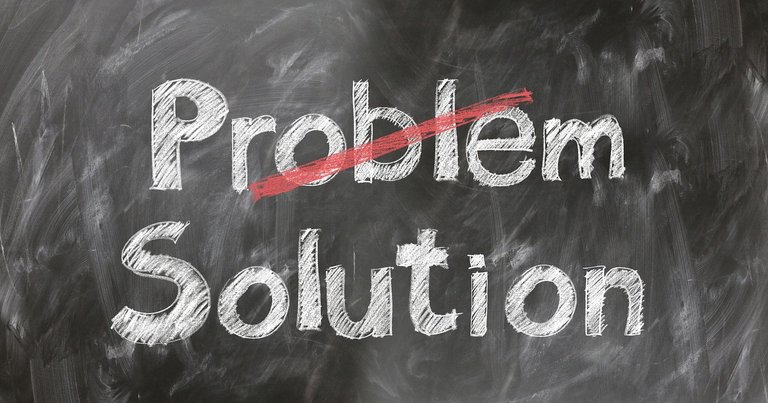Would you like to know what problems cryptocurrencies are solving in our financial world because this might help you understand why they have become so popular and why they are here to stay?

Contrary to regular money, cryptocurrencies are assets which make use of the strong cryptography for the sake of securing financial transactions. They are made to operate as a mean of exchange and Bitcoin is the most well-known of all cryptocurrencies, which was produced by Satoshi Nakamoto in 2009.
What Problems Do Cryptocurrencies Solve?
Although cryptocurrencies are new and some people are still skeptical about them, there has been a considerable increase in their adoption and acceptance by the economic community.

One of the reasons for this is that it has come to solve some existing problems in the financial world as outlined below.
Let's see what problems cryptocurrencies solve.
1. The cross-border payments issues
Having a cryptocurrency enables users to undertake safe cashless transactions without the need to pay high transaction charges. Cryptocurrency works at the universal level, enabling transactions to be quite easy. It aids in solving the issue of inflation since money can decrease its value with time.

It allows everyone to travel worldwide, carry out business globally, and even take part in functions without the need to convert into regional currencies.
In this case, the peer-to-peer network enables accessible international trades, free of complexities over the trade inconsistencies.
2. The non-bankers
It is perceived that just 27% of Southeast Asians have a bank account. This means that the rest 73% do not have banks. This population, however, has smartphones and they do cashless payments worldwide with the aid of the blockchain technology, which is a feature of cryptocurrencies.

The Blocnation’s multi-currency mobile wallet makes it possible for cryptocurrency users to exchange currencies, store altcoins and buy tickets for activities powered by the PouchNATION.
Also, they can book accommodations at different lodgings in Southeast Asia.
3. Intermediation charges
Furthermore, the cryptocurrencies solve the issue of the intermediation charges. On the Internet, a trade makes use of financial organizations as the intermediate for purpose of payment processing, making the value of deals very expensive, and undermining the borderless feature of the Internet business.

Contrarily, Bitcoin emerges as a warrantor of trader's privacy, guarding itself against today's financial system, which needs a series of private data to complete a transaction.
At the Bitcoin network, every person has just one or more sets of "keys" applied to represent ownership of a number of Bitcoins.
Here, the cryptocurrency essentially matches the physical cash in the sense that there is no demand for the seller to identify neither the consumer nor the source of their money.
4. Double booking or double spending
The blockchain technology has a powerful verification mechanism and activity documentation that do not let cryptocurrency users double spend or double book.

This implies that it does not allow redundant transactions for a single coin. This allows users to register tickets for conferences, events, music festivals and concerts.
5. Data tampering
Since cryptocurrencies are digital, they cannot be forged. They only exist as states in a global ledger platform that has the whole history of transactions for cryptocurrency carried out by everyone. This information is made available for every crypto currency holder.

This has to be verified and affirmed by all parties involved instead of just one central administrator. Because the order of transaction is done by classifying them into kind of blocks and connecting them into a chain, interchanging a block out is impracticable to execute the transaction.
Therefore, it bypasses removing or editing the information via illegal channels.
6. Identity stealing
Cryptocurrency enables users to transfer precisely what they wish to send to the receiver without any extra information. The blockchain has a lot of nodes that are spread across the globe.
Because blockchain is kept in a database that is decentralized, any hacker will experience difficulties when trying to obtain the information for the holder.

The decentralized quality of the blockchain technology coupling with the public-key cryptography does not allow anyone to break the chain.
7. The moral hazard problem
This is a situation whereby, somebody transfers their jeopardy to somebody else, without that particular person knowing, or willfully allowing the risk.
A good example would be a case when a bank finds itself in a trouble and consequently gets recapitalized via a bail-in or gets bailed out by the taxpayer or the government.

Here, they make the unfair policy resolution and implement them, at our expense. The result is that we pay for it when it implodes.
With heightened technology, we can just hope that crypto becomes even greater and continues to explore other potentially vulnerable areas in the financial world to bring efficiency and effectiveness.
I hope that this post is useful for you.
Would you upvote this post and follow me for more because this will encourage me to write more posts like this one?
I have categorized my posts on Steemit for easy access:
Steemit tools | Steemit strategies | Steem economics | Steem on WordPress | Blogging on Steemit | Steemit posts I curated | Cryptocurrency | Cryptocurrency trading | Mac computer tutorials | WordPress & online marketing | Self-development & motivation | Travel in Thailand | Travel in Japan | Travel in Europe | Life in Thailand | Fitness challenge | Fruit-veggie juices & smoothies | Education | My answers on Quora | Fundition tutorials & projects | Miscellaneous writing
You may prefer to go to my Steemit Posts Directory.
Want to learn a new skill? Visit MG Course Discounts where I have lots of online courses you can take for only $9. Sign-up for the newsletter to get one free course and coupon codes.
The most important votes you can make on Steem are for Witnesses. The top 20 witnesses can influence the addition or removal of features in future Steem hard forks. Read my post: What is a Steem Witness, How to Vote and Why?
Michel Gerard
Excellent article ;-) However, not all blockchain are decentralized. For example, XRP is fully centralized since Ripple company decides who is the validator. There is also NEO with 7 trusted nodes controlled by a single party, then Cardano, IOTA...
Thank you for your comment @alainbkk and telling us that not all blockchain are decentralized.
Your post had been curated by the @buildawhale team and mentioned here:
https://steemit.com/curation/@buildawhale/buildawhale-curation-digest-10-31-18
Keep up the good work and original content, everyone appreciates it!
Thank you very much @nicnas. It's nice to be curated just after a few week break from posting.